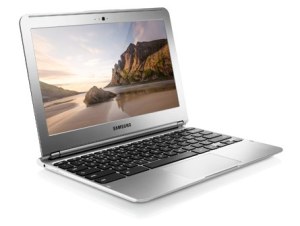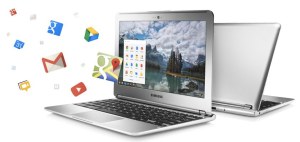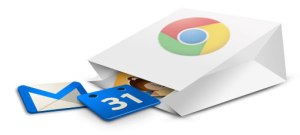Maybe Those Chromebooks Weren’t Such A Crazy Idea After All
FREDERIC LARDINOIS
posted yesterday
36 Comments
techcrunch.com

When Google launched its Linux-based Chrome OS in early 2010 and its Chromebook pilot program later that year, most pundits didn’t quite agree with our own MG Siegler’s premise that Google had dropped a “ nuclear bomb on Microsoft.” A few years later, it sure doesn’t look like Microsoft has much to fear from Chrome OS. But despite its slow start, it looks as if the Chrome OS momentum is slowly picking up.
Google has traditionally been very quiet about Chromebook sales and mostly focused on very large enterprise and educational installs. That’s clearly also the target market for the Chrome OS ecosystem right now, but when Acer says that its $199 C7 Chromebook now accounts for 5-10 percent of its U.S. shipments, it’s clear that some of those devices must have gone to regular users, too.
Acer is obviously playing the value game with its $199 Wi-Fi-only device. Samsung, too, offers a $249 Chromebook and a more fully featured $449 version. Both of these companies partnered with Google from the early days of the Chromebook program. Now, however, Lenovo is also getting in the game with its $429 ThinkPad X131e Chromebook, which will go on sale later this month. It’s unlikely that Lenovo would enter this market if it didn’t see some momentum for Chromebooks, too.
 At the low end, price obviously makes these Chromebooks attractive laptop alternatives, especially given that even these affordable devices don’t actually feel all that cheap compared to the usual Windows laptops that tend to start at around $400. Since Google switched to a more traditional window management system last year, the whole experience of using Chrome OS must also feel a lot more comfortable for a lot of users who were previously turned off by the Chrome-only look. At the low end, price obviously makes these Chromebooks attractive laptop alternatives, especially given that even these affordable devices don’t actually feel all that cheap compared to the usual Windows laptops that tend to start at around $400. Since Google switched to a more traditional window management system last year, the whole experience of using Chrome OS must also feel a lot more comfortable for a lot of users who were previously turned off by the Chrome-only look.
Still, with over 2,000 schools now using Chromebooks, the real market for these devices sure seems to be in the education space. Over the last year or so, I’ve heard from a number of educators that they prefer to use Chromebooks with their students than an iPad (their students probably think the exact opposite…). Not only are they obviously cheaper and come with service contracts and management consoles for administrators, but having a full keyboard and larger screen clearly make them attractive devices in the view of many teachers and school administrators. The fact that the devices auto-update regularly and are pretty much safe from viruses also makes for an attractive selling point when compared to traditional laptops. For Google, of course, this also means many of these kids will grow up in the Google ecosystem of Gmail and Google Drive, which surely isn’t going to hurt it once these students go on to college or get jobs.
 When Google launched Chrome OS, it was probably a bit ahead of its time. At the launch event, Google said it wanted “to rethink the personal computing experience for the web,” but Wi-Fi and 3G/4G connections weren’t all that ubiquitous back then and still aren’t today, so Google started to add more offline features and file-management capabilities to Chrome OS, as well as larger hard drives to its Chromebooks. Web apps weren’t all that powerful back in 2010 yet, either, but now, thanks to the power of HTML5, there isn’t really all that much you still need a traditional desktop for. When Google launched Chrome OS, it was probably a bit ahead of its time. At the launch event, Google said it wanted “to rethink the personal computing experience for the web,” but Wi-Fi and 3G/4G connections weren’t all that ubiquitous back then and still aren’t today, so Google started to add more offline features and file-management capabilities to Chrome OS, as well as larger hard drives to its Chromebooks. Web apps weren’t all that powerful back in 2010 yet, either, but now, thanks to the power of HTML5, there isn’t really all that much you still need a traditional desktop for.
Google is clearly in this for the long haul. It won’t challenge the market shares of Windows and OS X on the laptop anytime soon, but it sure has developed into an interesting platform over the last two years. And maybe Google’s idea to couple its browser with Linux and a pared-down laptop wasn’t so crazy after all. |







